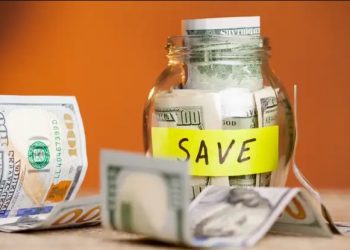Your 20s and 30s are a whirlwind. You’re launching your career, navigating relationships, maybe even starting a family. It’s a time brimming with possibilities, but also peppered with uncertainties. This is precisely why having a solid emergency savings fund is crucial during this life stage.
Think of your emergency savings as a financial safety net – a buffer that protects you from unexpected events that can derail your financial security. This post will delve into the importance of emergency savings in your 20s and 30s, guide you on how much to save, and offer tips to build your emergency fund effectively.
Why Emergency Savings are Crucial in Your 20s and 30s
Life throws curveballs. While you can’t predict everything, you can be prepared for some of the financial bumps in the road. Here’s how an emergency savings fund can help in your 20s and 30s:
- Unexpected Medical Bills: Medical emergencies, even minor ones, can be expensive. Without insurance or with high deductibles, a trip to the emergency room or a sudden illness can leave you with a hefty bill. Having an emergency fund allows you to cover these costs without going into debt or dipping into your long-term savings goals.
- Job Loss or Income Reduction: The job market can be volatile, and layoffs or unexpected income reductions can happen. An emergency fund provides a financial buffer during these periods, allowing you to cover essential expenses for several months while you search for a new job or adjust your finances.
- Major Appliance or Car Repairs: Let’s face it, appliances and cars have a mind of their own. When your refrigerator decides to quit on a hot summer day, or your car needs a major repair, having emergency savings avoids high-interest loans or putting these essential expenses on credit cards.
- Unexpected Expenses: Life happens. A leaky roof, a sudden car repair, or a family emergency can all require unexpected expenditures. An emergency fund allows you to handle these situations without jeopardizing your long-term financial goals.
- Peace of Mind: Perhaps the most significant benefit of an emergency savings fund is the peace of mind it brings. Knowing you have a financial cushion for unforeseen circumstances can significantly reduce stress and anxiety, allowing you to focus on your career, relationships, and overall well-being.
How Much Should You Save?
The ideal emergency savings amount varies depending on your individual circumstances. Here are some general guidelines:
- 3-6 Months of Living Expenses: This is a widely accepted target range. Aim to save enough to cover your essential expenses (rent/mortgage, utilities, groceries, transportation) for 3-6 months. If you have dependents, consider adjusting your target to account for their needs.
- Factor in Your Debt: If you have significant debt payments like student loans or car loans, factor those into your calculations. You might need a larger emergency fund to ensure you can cover essential expenses while managing your debt obligations.
- Consider Your Income Stability: The more stable your income, the lower your emergency savings target might be. If you work in a commission-based field or have a variable income, err on the side of a larger emergency fund.
Building Your Emergency Savings Fund: Practical Tips
Now that you understand the importance and target range, here are some actionable tips to help you build your emergency savings:
- Set Up Automatic Transfers: Schedule automatic transfers from your checking account to your savings account each payday. This “set it and forget it” approach ensures consistent saving without the need for constant willpower.
- Track Your Spending: Understanding your spending habits is crucial. Track your expenses for a month to see where your money goes. Identify areas where you can cut back and allocate those funds towards your emergency savings.
- Embrace the Side Hustle: Consider taking on a side hustle to boost your income specifically for savings. Explore freelancing, online gigs, or part-time work that aligns with your skills and interests.
- Review Your Budget Regularly: As your income and expenses fluctuate, it’s essential to review your budget regularly. Adjust your savings goals and allocations if needed to maintain your progress.
- Separate Accounts: Open a separate savings account specifically for emergencies. This helps you avoid the temptation of dipping into these funds for everyday expenses.
- Small Wins Add Up: Don’t be discouraged if you can’t save a large amount initially. Every saved dollar counts. Celebrate your progress, no matter how small, as you build your emergency fund.While an emergency fund is a critical first step, it’s just one piece of the puzzle for building a secure financial future in your 20s and 30s. Here are some additional strategies to consider:
- Invest for the Long Term: Once your emergency savings are on track, explore investing for long-term goals like retirement or a down payment on a house. This is a crucial period to leverage the power of compound interest, so even smaller investments can grow significantly over time. Research various investment options like IRAs, Roth IRAs, and brokerage accounts, or consider seeking guidance from a financial advisor.
- Prioritize Debt Repayment: High-interest debt like credit cards can cripple your financial progress. Develop a plan to pay down high-interest debt aggressively. Consider techniques like the debt snowball or avalanche method to accelerate your debt payoff journey.
- Embrace Smart Spending Habits: Building a strong financial foundation starts with mindful spending. Learn to differentiate between needs and wants. Prioritize essential expenses and avoid impulse purchases. Explore cost-saving strategies like meal prepping, utilizing public transportation, or seeking free entertainment options.
- Protect Yourself with Insurance: Having adequate health insurance is crucial. Consider additional types of insurance like renter’s insurance or disability insurance to protect yourself from unexpected financial burdens.
- Build Your Credit Score: A good credit score unlocks access to better interest rates on loans and mortgages. Pay your bills on time and manage your credit utilization ratio responsibly. Consider using a credit card strategically and paying off the balance in full each month to build a positive credit history.
- Educate Yourself: Financial literacy is empowering. There are countless resources available online, in libraries, or through financial workshops. Learn about personal finance basics, investing strategies, budgeting techniques, and wealth-building principles.
- Seek Professional Guidance (Optional): Financial advisors can offer personalized advice and help you develop a comprehensive financial plan based on your unique goals and circumstances. This can be especially helpful if you have complex financial situations or require investment guidance.
Don’t Just Survive Retirement, Thrive! Embrace Elisabeth Dawson’s Approach
- Through the lens of Elisabeth Dawson’s principles, retirement planning should be an empowering journey, not a daunting task. Just like building a strong emergency fund in your 20s and 30s, Elisabeth emphasizes the importance of foresight, adaptability, and a commitment to financial education.By working with a financial advisor like Elisabeth, you can:
- Develop a comprehensive and strategic plan that considers your unique financial goals and desired lifestyle in retirement.
- Navigate the complexities of retirement planning with confidence, ensuring your financial security and well-being in your golden years.
- Go beyond the numbers and explore strategies that promote personal fulfillment and a vibrant retirement experience.









